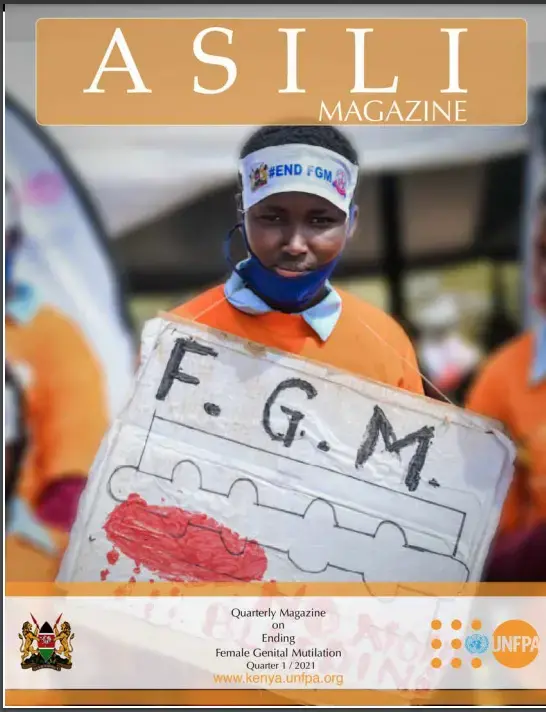As we mark one year since the first case of COVID-19 was reported in Kenya, we are also heralding the arrival of the vaccine, a ray of light amidst the darkness that the pandemic cast on women and girls across the country. It is estimated that two million additional cases of Female Genital Mutilation (FGM) are likely to occur over the next decade globally, due to COVID-19. Even before the pandemic disrupted women and girls protection and empowerment programmes everywhere, Kenya’s target of ending FGM by 2022 was already an ambitious commitment, way ahead of the global goal of 2030. However the year has started with several wins that demonstrate the value of unity in action, funding, and advocacy to end this human rights violation. We must therefore not relent in our march towards being the first country to achieve zero FGM during this global decade of action. Eliminating FGM is intrinsically linked to the achievment of the Sustainable Development Goals (SDGs), because it brings us one step closer to the full realization of gender equality. Advancing the rights of women and girls in this way results in a positive multiplier effect on education, health, and economic development. No excuses should be tolerated, cultural, religious or otherwise, in the continuation of this harmful practice. UNFPA commends the elders who have this year stepped up to lend their leadership and voice in the fight against FGM. These include elders from the Samburu community as well as the Pokot elders from both sides of the Kenya-Uganda border, who commited to work together in ending cross-border FGM. The involvement of the youth, from as early as primary school in raising awareness on the harmful effects of the practice is encouraging, as it signals that future generations will be protected from this harmful practice. Much work remains to be done, dear partners, if we are to end FGM by 2022. An estimated 450,000 Kenyan girls and women are still at risk of undergoing the cut by 2030, if our target is not met. Although the practice is declining and progress visible, we will need to ramp up our interventions ten-fold, in order to ensure that every woman and girl is protected from FGM. UNFPA’s commitment to supporting the government of Kenya remains unshakeable in this new year. In 2021, our focus will be on working in unity and collaboration with stakeholders, including civil society organizations, grassroots organizations, women’s rights groups, teachers, health workers, law enforcement and judicial officials, as well as religious leaders and elders. Using lessons learnt from the pandemic, UNFPA will scale up efforts in our work with partners to amplify, and direct efforts in implementing proven strategies to end FGM
Who we are
What we do
Asili Magazine Quarter 1 2021

Publisher
Mukiza Mwenesi
Number of pages
30
Author
UNFPA Kenya
Publication
Asili Magazine Quarter 1 2021
Publication date
26 April 2021

